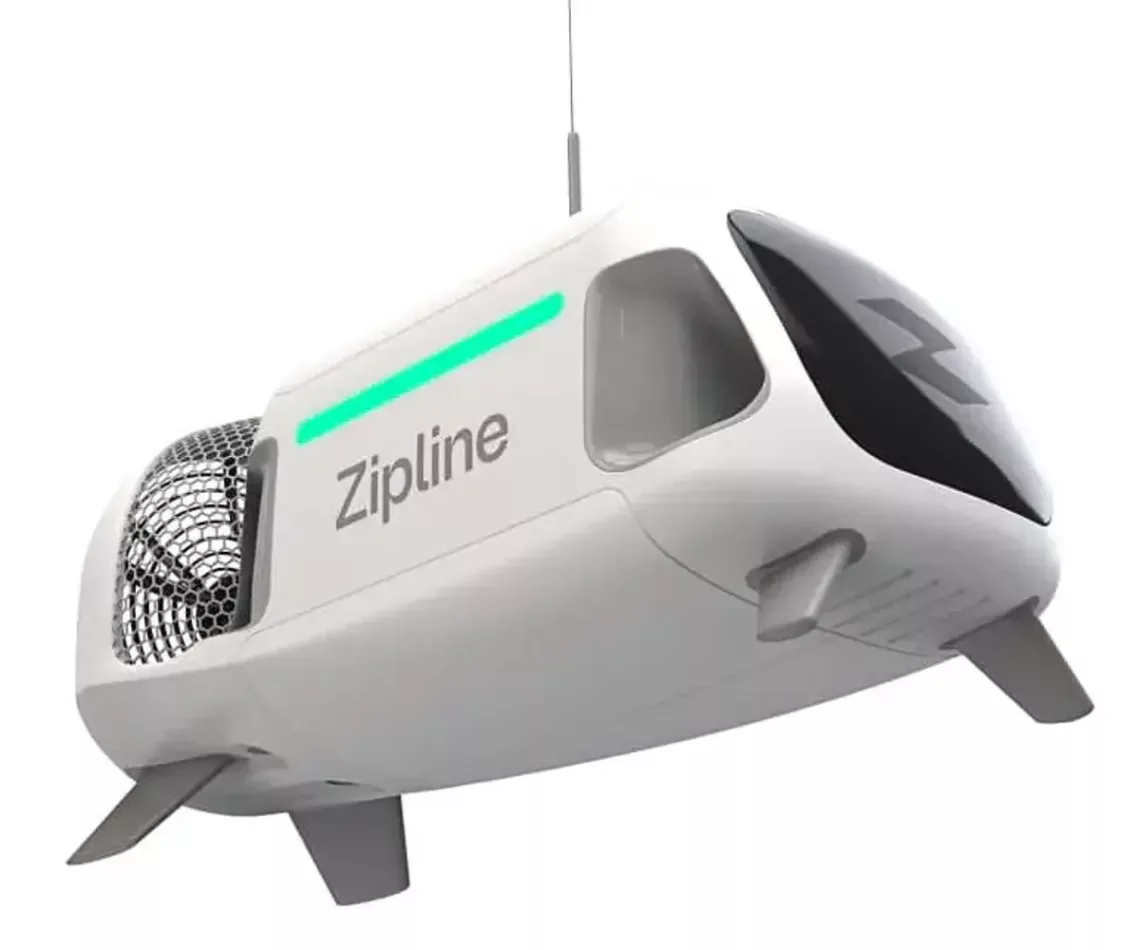Zipline yesterday introduced its new platform that provides quiet, fast and precise autonomous delivery directly to homes in cities and suburbs.
The company’s next generation home delivery platform is practically silent (designed to sound like wind rustling leaves), and is expected to deliver up to 7 times as fast as traditional automobile delivery, completing 10-mile deliveries in about 10 minutes.
Zipline has spent the last several years building and fine tuning its next generation technology, Platform 2 (P2), to provide an optimal customer experience at scale. Unlike other drone delivery services, Zipline’s drones (Zips) fly more than 300 feet above the ground and are nearly inaudible.
When the Zip arrives at its destination, it hovers safely and quietly at that altitude, while its fully autonomous delivery droid maneuvers down a tether, steers to the correct location, and gently drops off its package to areas as small as a patio table or the front steps of a home. This is all made possible through major innovations in aircraft and propeller design.
Several businesses across the healthcare and restaurant sectors have already signed on to use Zipline’s new home delivery service. Sweetgreen is partnering with Zipline to further its mission of connecting people to real food in the U.S., while moving a step closer to its pledge to be carbon-neutral by 2027.
By ordering through Zipline’s marketplace, Sweetgreen customers can get their orders using 97 per cent less energy than traditional automotive methods.
“The future of delivery is faster, more sustainable and creates broader access, all of which provides improved value for our customers,” said Jonathan Neman, Co-Founder and CEO of Sweetgreen. “We couldn’t be more excited to work with Zipline to complement our delivery strategy. Zipline’s sustainable technology and ability to reach customers quickly, with a great delivery experience, will help us give our customers what they want, when they want it,”he added.
Michigan Medicine will use Zipline’s new service to more than double the number of prescriptions it fills each year through its in-house pharmacy. Intermountain Health will use it to deliver prescriptions to patients’ homes in the Salt Lake City metro area.
MultiCare Health System plans to use the new platform to expedite diagnostics and deliver prescriptions and medical devices throughout MultiCare’s network of facilities, including hospitals, laboratories and doctors’ offices. And Zipline’s first customer, the Government of Rwanda, will use the company’s new home delivery service to enable urban aerial last-mile delivery to homes, hotels and health facilities in Kigali and elsewhere in the country.
Zipline’s end-to-end solution seamlessly integrates with a business’s current operations. That includes its dual-use docking and charging hardware, software that easily works with third-party inventory management and ordering systems, an intuitive app that allows order tracking down to the second, and an autonomy system that has already guided the flight paths of 40 million commercial miles.
Zipline designed its docking and charging hardware to have a light footprint that can be attached to any building or set up as a freestanding structure. A Zip can be easily loaded by a business’ employee who can send off orders in seconds, right from their location, without even having to leave the kitchen, pharmacy or doctors’ office.
Businesses can offer Zipline’s home delivery service in a variety of ways, including native integrations into apps and websites, white labeled opportunities, and by joining Zipline’s marketplace. Customers can make on-demand orders, or schedule the exact time they’d like their package to arrive, down to the second.





